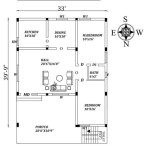Affirmative Fair Housing Marketing Plan: Multi-Family
An Affirmative Fair Housing Marketing Plan (AFHMP) is a crucial tool for multi-family property owners and managers. It demonstrates a commitment to fair housing practices and helps ensure diverse and inclusive communities. Federal regulations mandate AFHMPs for properties receiving certain types of federal funding, such as Low-Income Housing Tax Credits (LIHTC) or properties participating in HUD programs. However, even properties without these funding sources can benefit from implementing an AFHMP to proactively prevent discriminatory practices and foster positive community relations.
The core purpose of an AFHMP is to expand housing opportunities for protected classes. These classes are defined under the Fair Housing Act and include race, color, national origin, religion, sex, familial status, and disability. An effective AFHMP details specific actions to attract and retain a diverse range of residents, reflecting the demographics of the broader community.
A comprehensive AFHMP typically includes a detailed analysis of the property's current market reach. This involves assessing the demographic composition of the current resident base and comparing it to the demographics of the broader market area. This analysis helps identify any existing disparities and informs the development of targeted outreach strategies. Data sources for this analysis may include census data, local housing studies, and internal records.
Outreach strategies form the backbone of an AFHMP. These strategies are designed to reach a wide range of potential applicants, particularly those belonging to protected classes. Effective outreach often involves partnering with community organizations that serve specific demographic groups. Examples include religious institutions, cultural centers, disability advocacy groups, and organizations serving families with children.
Advertising plays a critical role in attracting potential residents. An AFHMP should outline specific advertising practices that ensure non-discriminatory messaging and broad market reach. This includes using inclusive language and imagery in advertisements and placing them in media outlets that reach diverse audiences. Consideration should be given to advertising in multiple languages, where appropriate, to effectively reach non-English speaking populations.
Accessibility is a crucial component of fair housing, particularly for individuals with disabilities. An AFHMP should address accessibility features of the property and how these features are communicated to potential residents. This includes information about accessible units, common areas, and amenities. Property managers should be trained to effectively communicate accessibility information to applicants and accommodate reasonable accommodation requests.
Training for staff is essential for the successful implementation of an AFHMP. All staff members involved in the leasing process should receive training on fair housing laws and the property's specific AFHMP. This training helps ensure consistent and equitable treatment of all applicants, regardless of their background or protected class status.
Monitoring and evaluation are essential for ensuring the effectiveness of an AFHMP. Regularly reviewing the plan's implementation and tracking key metrics, such as applicant demographics and resident retention rates, allows for necessary adjustments and improvements. This continuous evaluation process helps maintain the plan's relevance and effectiveness in achieving its fair housing goals.
Recordkeeping is a crucial aspect of demonstrating compliance with Fair Housing laws and the commitments outlined in the AFHMP. Maintaining accurate records of outreach efforts, advertising placements, applicant demographics, and resident communications helps document the property's adherence to fair housing practices. These records can also be invaluable in responding to any fair housing complaints or inquiries.
Developing and implementing an AFHMP requires a proactive and ongoing commitment. It involves more than simply creating a document; it requires a change in organizational culture and a dedication to fostering inclusive communities. Resources are available to assist property owners and managers in developing and implementing effective AFHMPs. HUD provides guidance and resources on fair housing, and various fair housing organizations offer training and support.
By embracing the principles of fair housing and implementing a well-crafted AFHMP, multi-family property owners and managers can contribute to creating diverse, inclusive, and vibrant communities. This not only benefits residents but also strengthens the overall housing market and contributes to a more equitable society.
Regular review and updating of the AFHMP are crucial to its long-term effectiveness. As community demographics change and new fair housing challenges emerge, the plan should be adapted to address these evolving needs. This ensures that the AFHMP remains a relevant and dynamic tool for promoting fair housing principles.

Hecht Group Affirmative Fair Housing Marketing Plan A Comprehensive Guide

Form Hud 92243 Pra Fill Out Sign And Fillable Templateroller

Form Hud 92243 Pra Fill Out Sign And Fillable Templateroller
Accredited Compliance Expert Hud Courses Eventbrite
Affirmative Marketing Tdhca Gui
Sahma

32 Sample Annual Marketing Plans In Ms Word

50 Sample Basic Marketing Plan In

Fair Housing Special Topics How To Create An Affirmative Marketing Plan
Getting Data For The Affirmative Fair Housing Marketing Plan








